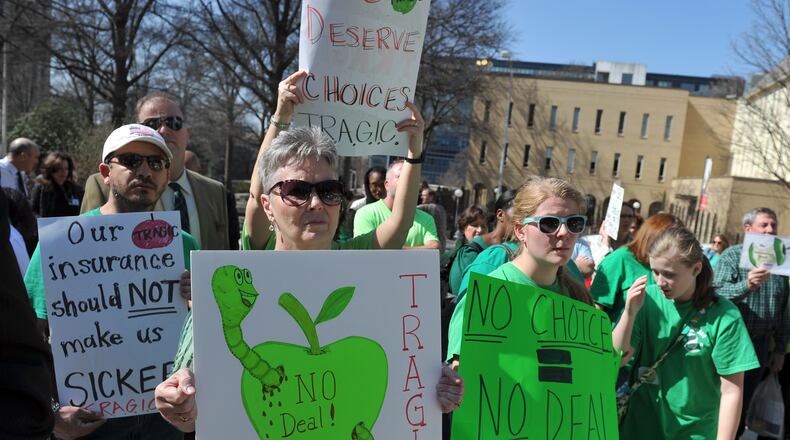The Department of Community Health is expected to revise plans to more than triple the cost of insurance coverage for some of Georgia’s retired teachers and employees, reversing a move last month that led some to accuse the agency of steering business to Anthem Blue Cross and Blue Shield.
Chris Riley, the chief of staff to Gov. Nathan Deal, said the DCH board will reverse the earlier decision and keep rates flat for the thousands of Georgians who buy Medicare Advantage health insurance from UnitedHealthCare as part of the State Health Benefit Plan.
The DCH board is scheduled to hold a phone meeting on the issue Friday.
The $3 billion State Health Benefit Plan provides health insurance to more than 650,000 teachers, state employees, retirees and their dependents. About 114,000 retirees get insurance through UnitedHealthCare, which, along with Blue Cross and Blue Shield, provides such coverage to plan members.
Last month the DCH board voted to increase monthly premiums for United's standard Medicare Advantage plan from $25.38 to $107.09. United expected the rates to stay flat. The monthly premiums for Blue Cross and Blue Shield's standard plan went from $44.88 to $0.
Medicare Advantage plans provide coverage through private insurance companies approved by Medicare.
After the decision last month, retirees responded by accusing the agency of trying to steer business to Blue Cross by making United’s premiums unaffordable. United urged state officials to keep rates at $25.38.
Riley said the DCH is expected to do just that.
This isn’t the first time the DCH has been in the middle of a spat over who gets State Health Benefit Plan business.
In 2013, United sued after it lost its contract to manage the plan to Blue Cross, accusing the DCH of "state-sponsored bid rigging." The agency denied the charge.
The new plan for 2014 — which like 2018 was an election year — offered members more limited health care choices with higher out-of-pocket expenses to save the state money. Teachers, state employees and retirees cried foul and formed the group TRAGIC to fight the changes. Deal, who was up for re-election, and the DCH quickly pumped more money into the program to make at least some of those increased costs go away.
A few months later, the DCH included United again among the companies offering coverage to State Health Benefit Plan members.
About the Author
Keep Reading
The Latest
Featured




